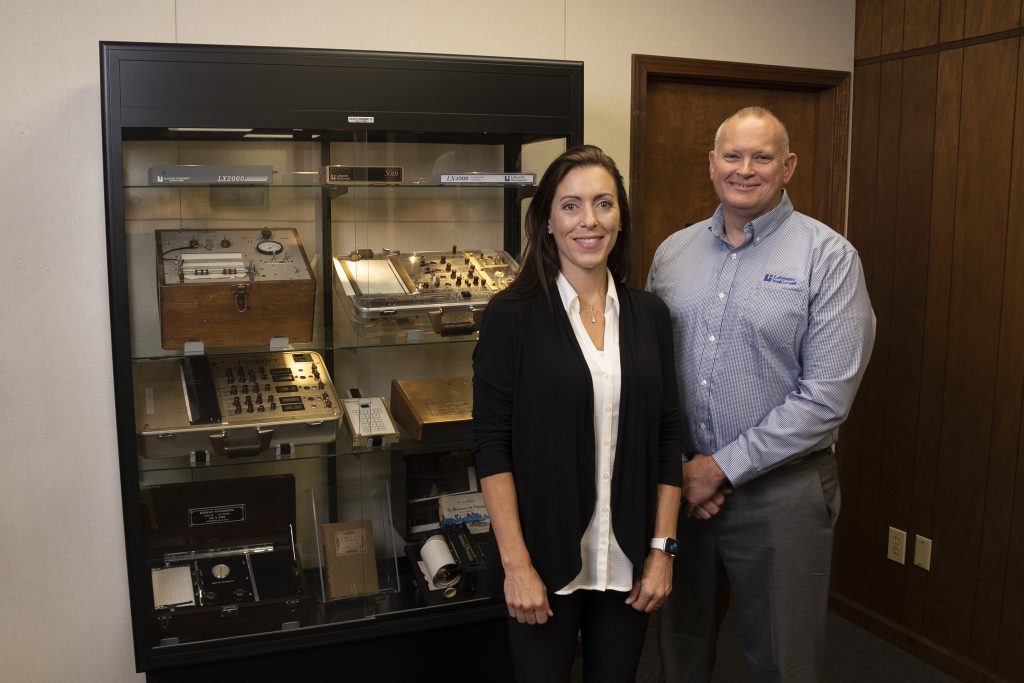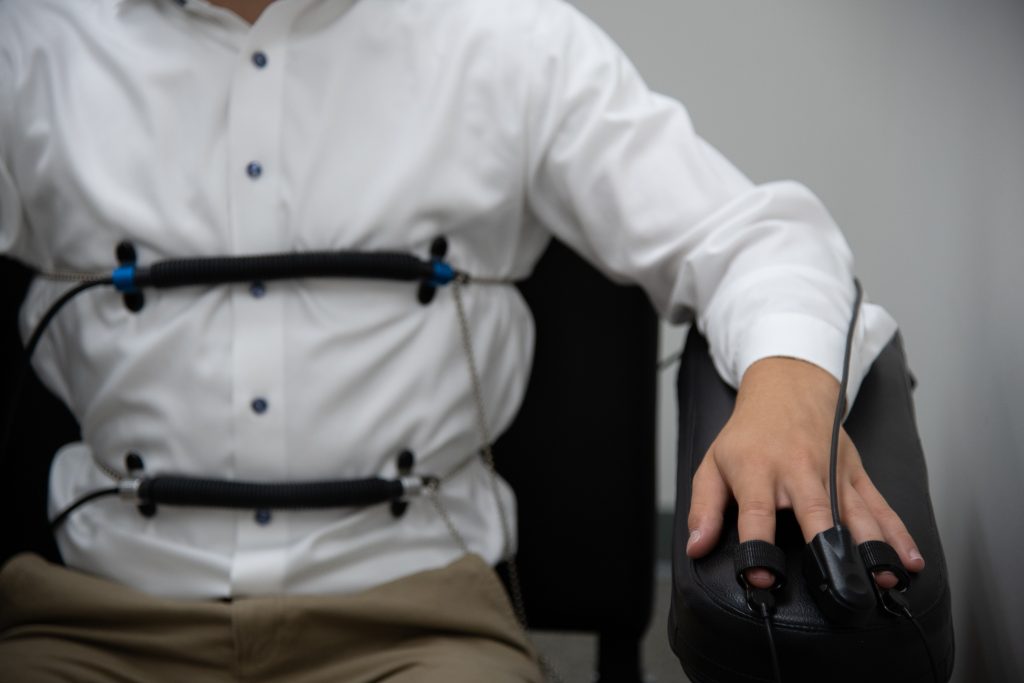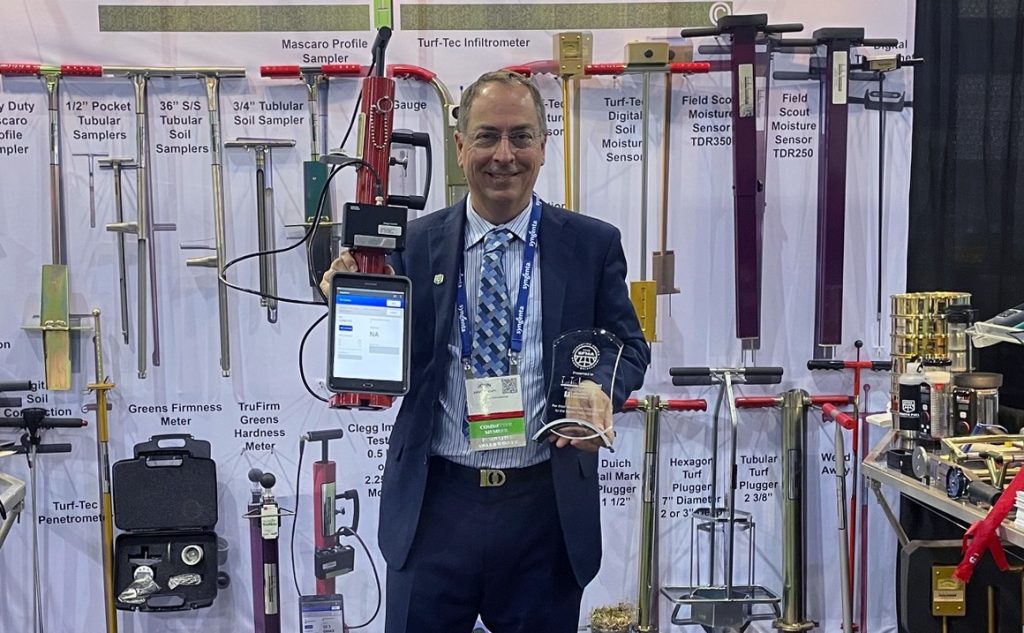BY KAT BRAZ
PHOTOS BY CHRISTINE PETKOV
Before the start of every NFL game, the stadium’s grounds crew uses a Clegg Impact Tester to determine the hardness of the field and to ensure the playing surface is safe for athletes. Developed in the 1970s in Australia by Baden Clegg, a geomechanical engineer and a lecturer at the University of Western Australia, the instrument contains an accelerometer, or hammer, that is dropped from a predetermined height to measure how quickly weight stops upon impact.
NFL rules dictate the reading must produce a score under 100 before a game can be played. The higher the number, the harder the playing surface and the higher the risk for a player to suffer a concussion if his head hits the ground. And every Clegg Impact Tester used by the NFL is manufactured by Lafayette Instrument Company, which celebrates its 75th anniversary this year.
“People drive by the building and see the word ‘instrument’ and they think we make musical instruments,” says Brian Brown, sales manager for Lafayette Instrument. “We actually make and sell scientific instruments in more than 100 different countries, working with corporate clients such as the NFL, American Airlines and FedEx.”
In addition to being the sole distributer of the Clegg, Lafayette Instrument is the world’s leading manufacturer of Polygraph instrumentation and equipment and offers innovative technologies to support neuroscience research and instruments for human evaluation used in education, temporary staffing, human resources, occupational medicine, rehabilitation and other professions.
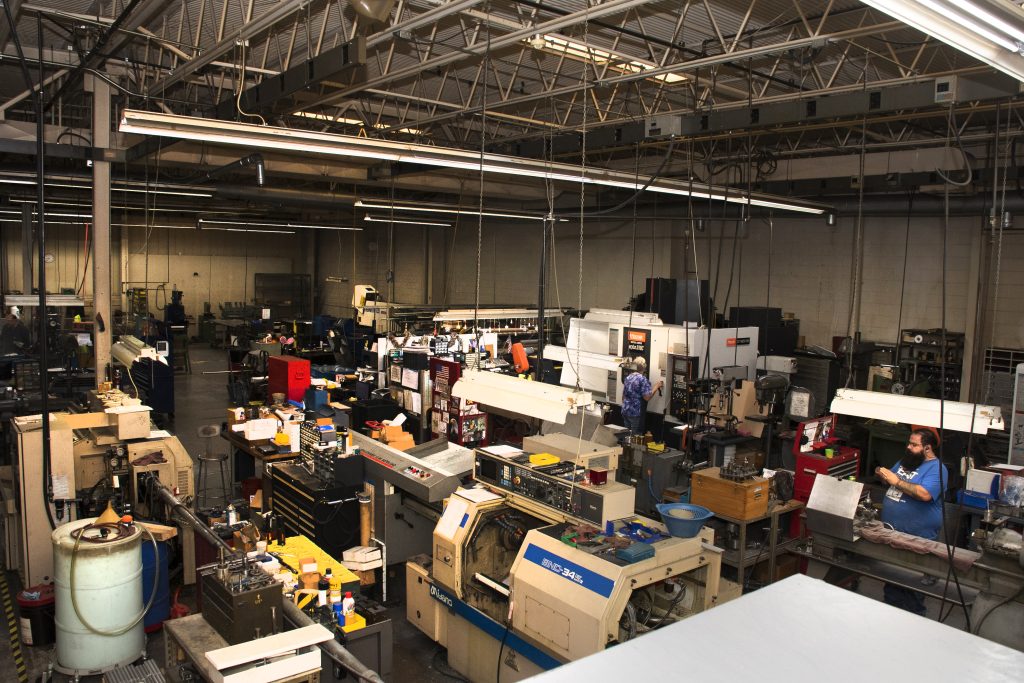
“For the past 75 years, we’ve been able to reinvent ourselves to meet customers’ needs,” says Jennifer Rider, president and CEO of Lafayette Instrument. “What started as a partnership with Purdue University expanded to partnerships with numerous universities, government agencies and other organizations around the world. Our product line and massive reach sets us apart from other businesses in the area, and even in the state.”
Lafayette Instrument was founded by Purdue electrical engineering graduate Max Wastl in 1947. What began as a small operation in a shed with one employee has grown into an international leader in scientific instrumentation manufacturing with the Lafayette-based headquarters and primary manufacturing facility that employs 48 people, and a second location, Camden Instruments, acquired in 1998 and located about one hour northeast of Birmingham, England, that employs around 20.
“Our Camden Instruments subsidiary focuses on neuroscience products exclusively,” Rider says. “They do some machining and a lot of their own assembly. They have their own engineering and tech teams, much like Lafayette, just on a smaller scale.”
Rider’s father-in-law, Roger McClellan, bought the company with two partners and restructured it in the 1990s with a focus on vertical integration, a business model that became critical during the COVID-19 pandemic.
“Lafayette Instrument has the capability to not only conceive product ideas and iterate on them but also build them out in full-scale production within our own facility,” Rider says. “Over the past 10 to 20 years, vertical integration isn’t quite as critical as it used to be. We have many options available to us, using providers around the state and sourcing equipment internationally. We still do as much as we can in-house because it saves money and it certainly saves us time. During the COVID-19 pandemic, when other companies were waiting on vendors and suppliers, we were able to fulfill orders.”
The orders Lafayette Instrument fills range from simple instruments such as a pegboard used to test fingertip dexterity and gross movement of the hand in an ergonomics lab or basic calipers used for physical ability testing, to sophisticated computerized instruments used in health care, law enforcement and research facilities that can communicate instantaneous results digitally.
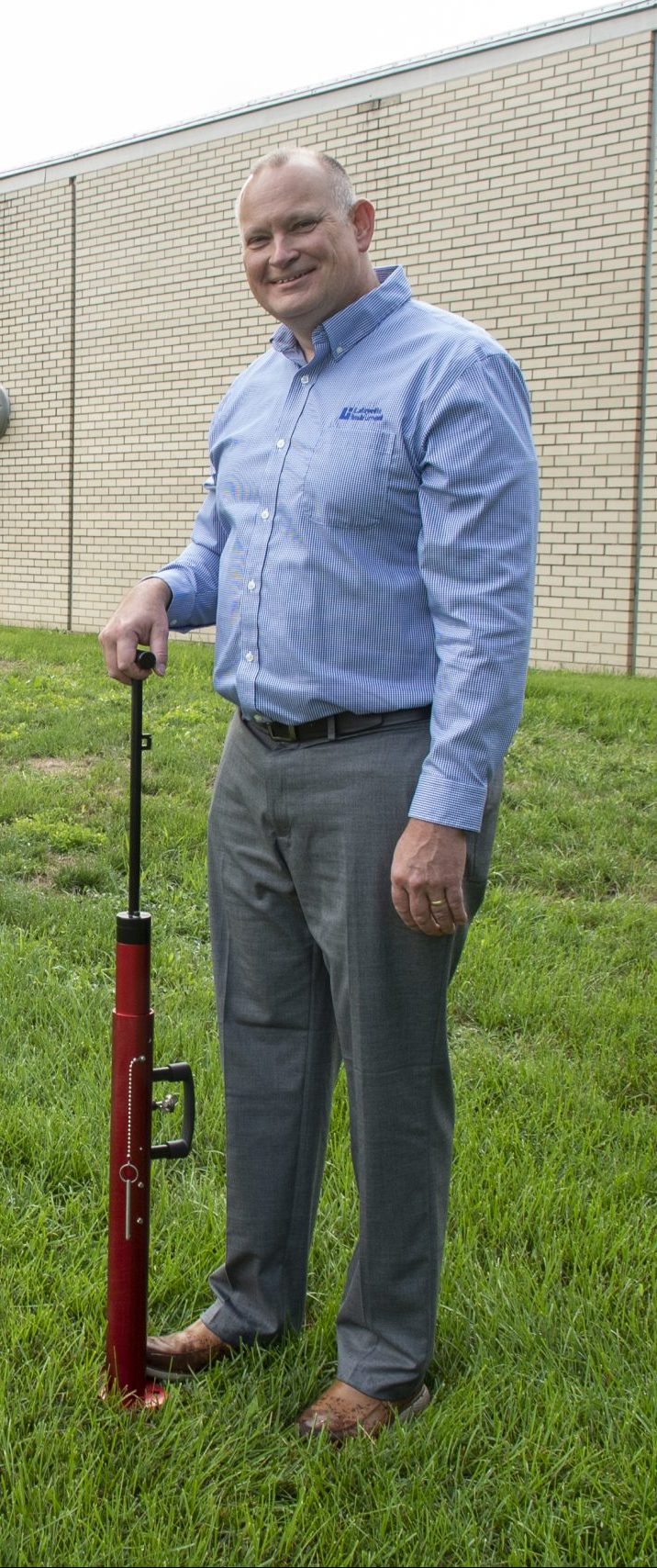
The Polygraph is one such instrument that Lafayette Instrument continues to innovate. The paper readouts depicted in the movies have been replaced with a computerized system that connects to a digital interface.
“The need for credibility assessment solutions has remained steady and increased,” Rider says. “The organizations that use Polygraph know it’s the best tool and technology available today, outside of basic interview and interrogation techniques, to try to determine if a person is being deceptive. But it doesn’t mean it is the exclusive technology that will always be used forever.
“There are academic endeavors, institutional endeavors and our own research and development to find ways to make it better. But the need for products like these aren’t going away. Whether it’s cybercrimes or terrorism or criminal investigations, the data acquired through these types of instruments is incredibly valuable.”
Customers approach the company with ideas for specific instruments they need. Occasionally those will be large-scale custom manufacturing orders, but most often they are tools that Lafayette Instrument can bring to market.
“We’re very ingrained in the industries we serve,” Brown says. “People recognize the Lafayette Instrument name and come to us for solutions. The confidence our customers have in our company to be on the leading edge of innovation and provide instrumentation that is going to benefit them is what keeps me excited.”
As Lafayette Instrument looks to its next 75 years, capitalizing on the strength of its employees — many are long-tenured like Brown — and its drive for ingenuity will propel its growth for years to come.
“To reach 100-year-plus milestones, you can’t be afraid of change and disruption,” Rider says. “We don’t want to be complacent and think we’ll have another 75 years of success doing exactly what we’ve been doing. We have to understand the value that we bring to the market and to our customers and build on that. We have to know ourselves. When you stray too far from your core strengths, that’s when a company starts to falter.”
Whether it’s working with governmental agencies, neuroscience researchers and industry, health care practitioners or the NFL, Lafayette Instrument offers solutions that advance safety, security, science and medicine.
“Every product that goes out our doors is helping someone or protecting someone,” Rider says. “There’s a lot of purpose in that work that gives meaning to what you’re doing. It’s easy to be fulfilled by that.” ★
